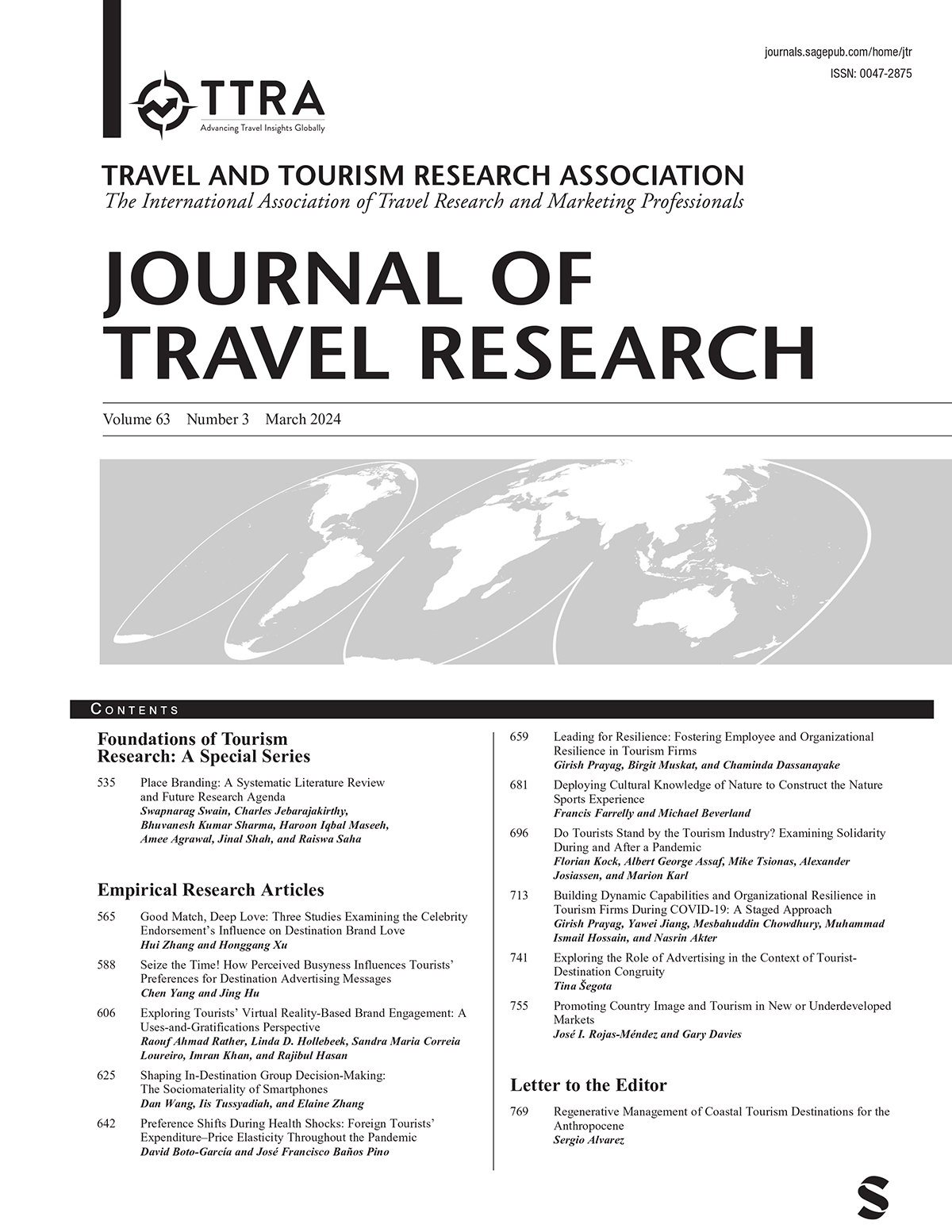艳羡和消费者生成的内容是否会促进旅游动机?
IF 7
2区 管理学
Q1 HOSPITALITY, LEISURE, SPORT & TOURISM
引用次数: 0
摘要
本文研究了消费者生成的内容、旅游动机、访问目的地的愿望、访问目的地的意向以及支付更多费用的意愿之间的关系。本文还分析了羡慕类型对这些关系的调节作用。我们收集了美国 414 名参与者的数据。研究结果表明,对参与者分享的重视程度(IPS)可预测逃避和新奇动机,而对非参与者分享的重视程度(INPS)可预测刺激体验、新奇、声望和自我发展动机。访问目的地的愿望也会对目的地访问意向和支付更多费用的意愿产生积极影响。良性嫉妒对 INPS/IPS 与声望动机之间的关系有调节作用。另一方面,恶意嫉妒只对 INPS 与逃避动机之间的关系有调节作用。本研究揭示了消费者生成的内容(CGC)对内在旅游动机的强烈影响。本研究还从自我决定理论的角度解释了消费者生成内容如何影响态度和行为。本文章由计算机程序翻译,如有差异,请以英文原文为准。
Do Envy and Consumer-Generated Content Boost Travel Motivations?
This article examines the relationships between consumer-generated content, travel motivation, desire to visit a destination, destination visit intention, and willingness to pay more. This article also analyzes the moderating effect of envy types on these relationships. We collected data from 414 participants in the US. According to the research findings, importance attached to participant sharing (IPS) is a predictor of escape and novelty motivation, while importance attached to non-participant sharing (INPS) is a predictor of exciting experience, novelty, prestige, and self-development motivations. Desire to visit the destination also positively affects destination visit intention and willingness to pay more. Benign envy has a moderating effect on relationships between INPS/IPS and prestige motivation. On the other hand, malicious envy has only a moderating effect on the relationship between INPS and escape motivation. This study reveals that consumer-generated content (CGC) strongly influences intrinsic travel motives. This study also explains how CGC influences attitudes and behaviors in the context of self-determination theory.
求助全文
通过发布文献求助,成功后即可免费获取论文全文。
去求助
来源期刊

Journal of Travel Research
HOSPITALITY, LEISURE, SPORT & TOURISM-
CiteScore
18.90
自引率
9.00%
发文量
66
期刊介绍:
The Journal of Travel Research (JTR) stands as the preeminent, peer-reviewed research journal dedicated to exploring the intricacies of the travel and tourism industry, encompassing development, management, marketing, economics, and behavior. Offering a wealth of up-to-date, meticulously curated research, JTR serves as an invaluable resource for researchers, educators, and industry professionals alike, shedding light on behavioral trends and management theories within one of the most influential and dynamic sectors. Established in 1961, JTR holds the distinction of being the longest-standing among the world’s top-ranked scholarly journals singularly focused on travel and tourism, underscoring the global significance of this multifaceted industry, both economically and socially.
 求助内容:
求助内容: 应助结果提醒方式:
应助结果提醒方式:


